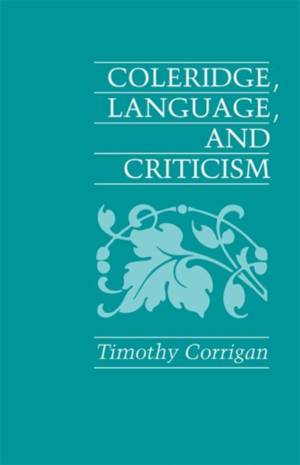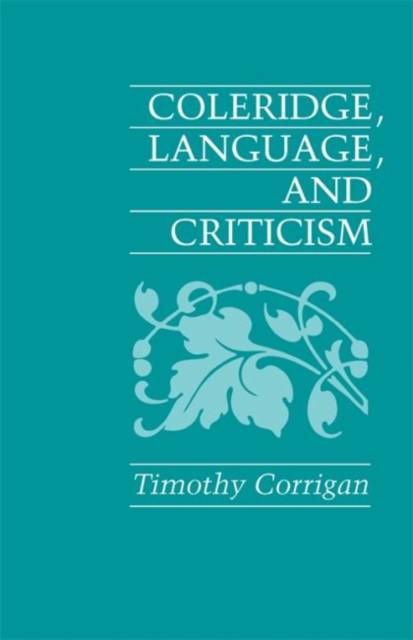
- Afhalen na 1 uur in een winkel met voorraad
- Gratis thuislevering in België vanaf € 30
- Ruim aanbod met 7 miljoen producten
- Afhalen na 1 uur in een winkel met voorraad
- Gratis thuislevering in België vanaf € 30
- Ruim aanbod met 7 miljoen producten
Zoeken
Omschrijving
Long celebrated as a great aesthetic idealist and champion of the imagination, Coleridge is now beginning to be understood as a literary critic with many other dimensions, with exciting and far-reaching insights into language, and with detailed notions about the psychological, historical, and linguistic demands of the literary experience.
In this study, Timothy Corrigan sees Coleridge's criticism as "the product of an actively self-conscious reader, of a precise user of language, and, most of all, of a historical man involved with the demands of his day." Specifically he studies the relationship between the language of Coleridge's criticism and his interests in politics, psychology, science, and theology. Corrigan concludes that Coleridge's work is not a closed and strictly defined system but an extraordinarily diverse one that responds sympathetically to new angles of research. His study is first and foremost an investigation of Coleridge's criticism based on Coleridge's own ideas about language and reading. While taking its particular direction from a variety of contemporary literary theories, the book is most concerned with how Coleridge's critical prose and theoretical positions anticipate these in an exceptionally complex way.Specificaties
Betrokkenen
- Auteur(s):
- Uitgeverij:
Inhoud
- Aantal bladzijden:
- 232
- Taal:
- Engels
Eigenschappen
- Productcode (EAN):
- 9780820332406
- Verschijningsdatum:
- 1/04/2008
- Uitvoering:
- Paperback
- Formaat:
- Trade paperback (VS)
- Afmetingen:
- 140 mm x 216 mm
- Gewicht:
- 299 g

Alleen bij Standaard Boekhandel
+ 94 punten op je klantenkaart van Standaard Boekhandel
Beoordelingen
We publiceren alleen reviews die voldoen aan de voorwaarden voor reviews. Bekijk onze voorwaarden voor reviews.











